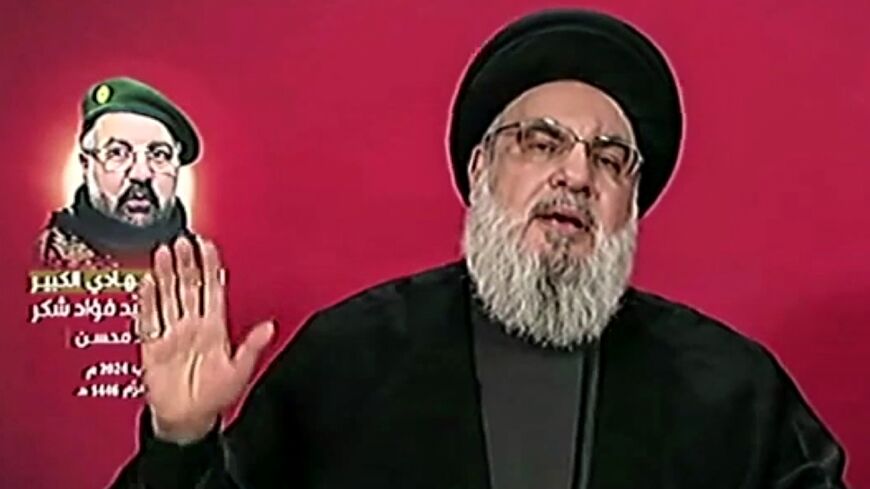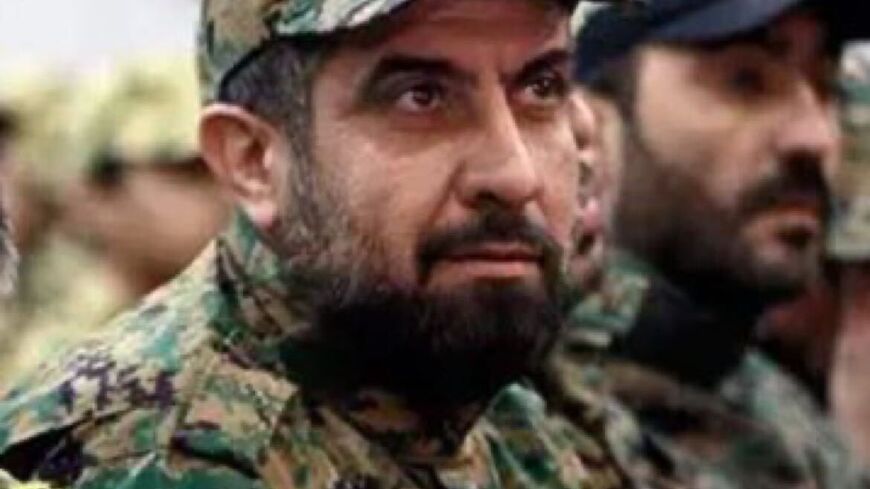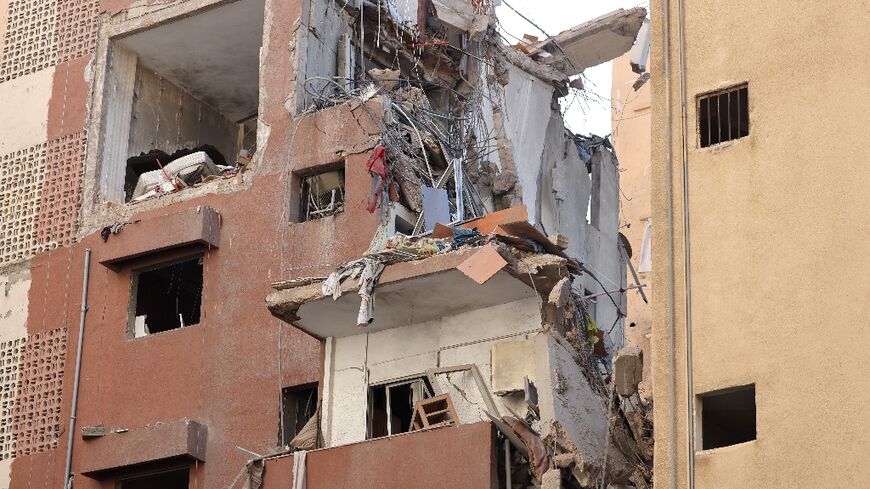Hezbollah chief says war with Israel in 'new phase,' vows 'real response' to Shukr's killing
Hezbollah Secretary General Hassan Nasrallah said the group and its allies will respond to the killing of commander Fuad Shukr in an Israeli strike in the southern suburbs of Beirut, warning that the battle has now entered a new phase.

BEIRUT — Hezbollah chief Hassan Nasrallah vowed an imminent response Thursday to the killing of one of the group’s commanders in an Israeli strike earlier this week.
“The resistance’s response to the assassination of commander Fuad Shukr is settled and beyond debate,” Nasrallah said.
"Any action that happens in the coming days is not a response to the death of Shukr," he continued, however, adding that such response "is a regulated matter."
“The enemy and those supporting the enemy should expect our inevitable response, which will certainly come,” he warned.
Nasrallah, visibly angry in the speech, said the conflict with Israel has entered a new phase.
"We, on all support fronts, have entered a new phase. … Laugh now, but you will cry greatly, and you don't know what red lines you have crossed and what kind of aggression you have committed," he said.
"We are looking for a real response, not an official response as promoted, but a very considerate response," Nasrallah added.
Nasrallah made the remarks in a televised speech during the funeral of Shukr, who was killed in Israeli drone strikes in the southern suburbs of the Lebanese capital Beirut on Tuesday. The attack left at least seven people dead, including women and children.
The Israeli army said the attack came in response to a rocket strike in the Druze town of Majdal Shams in the Israeli-controlled Golan Heights that killed at least 12 children last Saturday. Israel accused Hezbollah of carrying out the attack, which the group immediately denied.
In his Thursday speech, Nasrallah reiterated that Hezbollah was not behind the attack.
“We deny our responsibility for what happened in Majdal Shams, and our internal investigation confirms that.”
He said the group rejects Israel’s claim that the strikes in the suburbs were retaliatory, saying they amounted to “aggression” by Israel against civilians as part of the “US-Zionist war on the peoples of the region.”
“I confirm that this accusation is unjust, unacceptable and misleading, and aims to acquit the enemy’s army of the incident [in Majdal Shams] and to sow strife between the people of the Golan and the resistance,” he added.
The region has been on edge since the Majdal Shams attack and the Israeli strikes, fearing a wider regional war. Tensions further escalated Wednesday after Hamas announced the killing of its leader, Ismail Haniyeh, in a strike in Tehran blamed on Israel.
Iran, Hezbollah’s main backer, has threatened to respond to Haniyeh's killing. Israel has not claimed the attack and has not commented on the matter.
Nasrallah said Iran will not remain silent, asking, “Do they imagine that they can kill Ismail Haniyeh in Tehran and still expect Iran to stand idly by?”
Israel has crossed “a red line” and “must now expect rage and revenge on all the fronts supporting Gaza,” he said.
The Hezbollah chief went on, “The battle has now entered a new phase that is no longer limited to the support fronts,” in reference to Iran's proxy groups in the region, namely Yemen’s Houthi rebels and several Shiite groups in Iraq and Syria, as well as Hezbollah itself.
Since the Israel-Hamas war broke out in the Gaza Strip on Oct. 7, these groups have made repeated attacks against Israel and in some cases against US interests in the region.
Nasrallah promised that the so-called axis of resistance will not surrender despite the growing pressure and Israel’s killings and destruction.




![🚨 [#Picture] Photos of the aftermath of the strike on Haret Hreik sent to L'Orient Today by Hassan Chaitani, local resident in the area.](/sites/default/files/styles/article_header/public/2024-07/Dahiye.jpeg?h=08b866d1&itok=wVXnDv4s)


